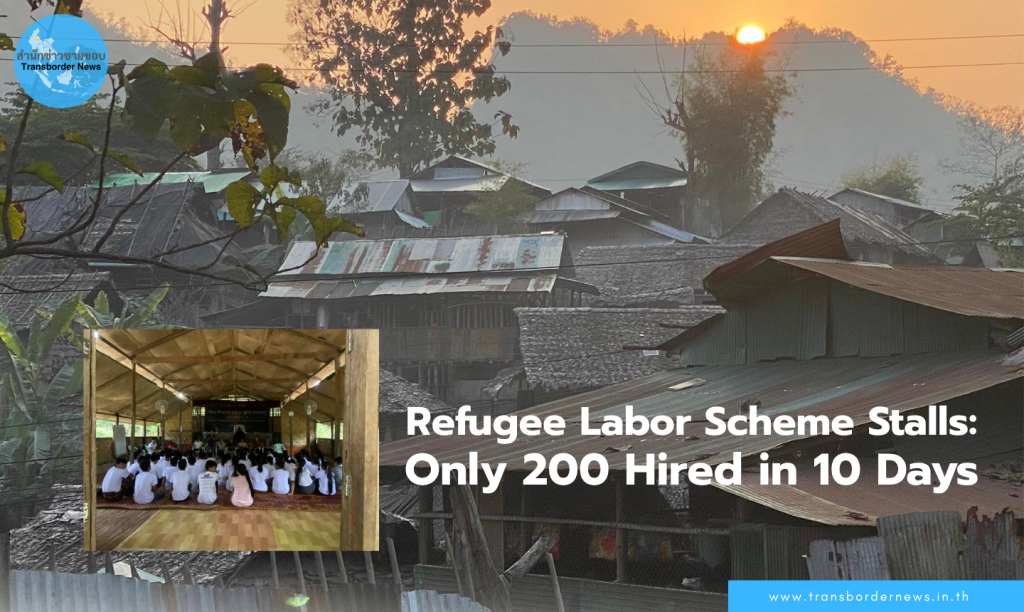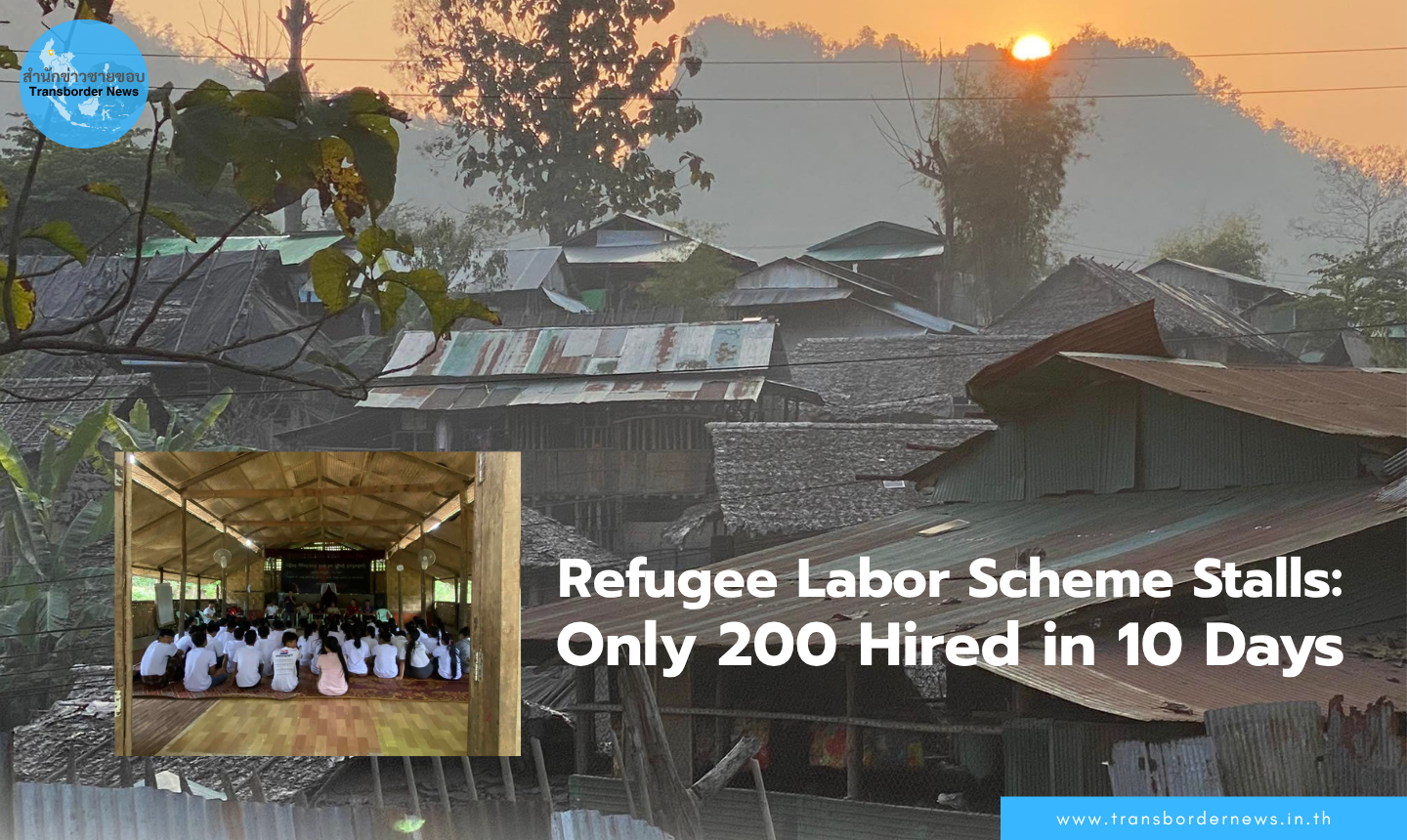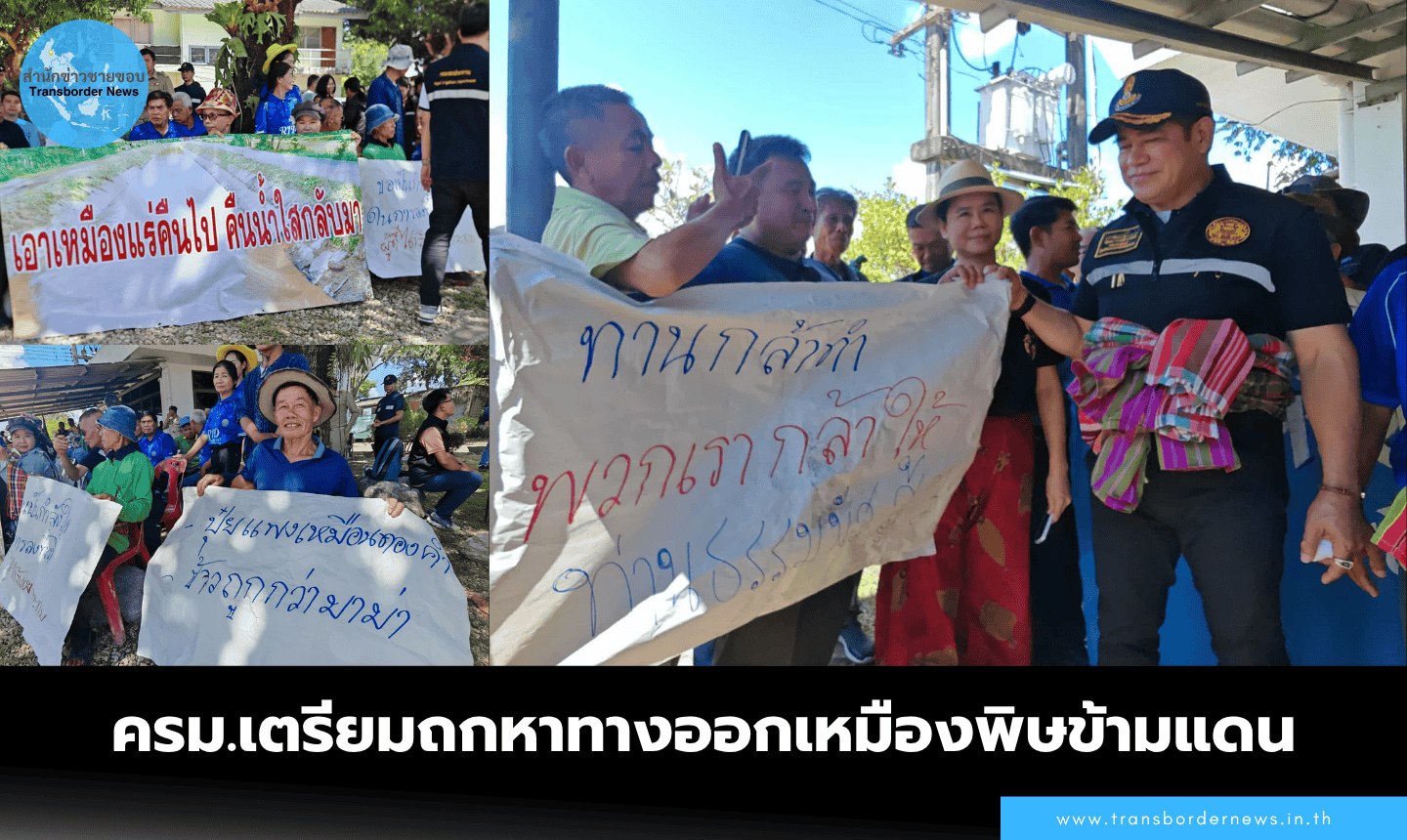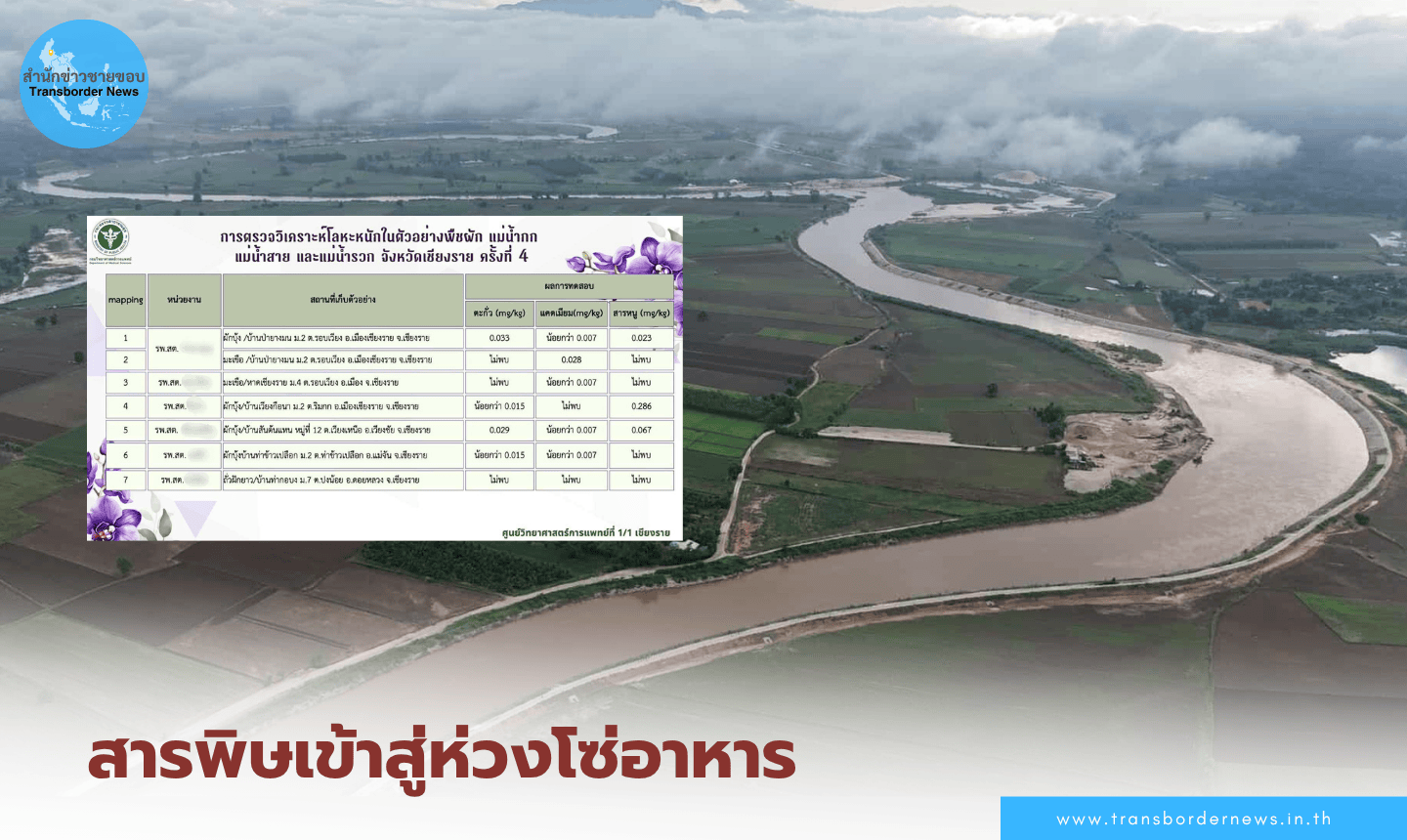October 10, 2025 — Thailand’s pilot program to allow refugees from camps along the Thai–Myanmar border to work legally in the country has gotten off to a slow start, with just 200 hires reported since its launch on October 1.
The scheme, which covers nine refugee camps, was expected to help ease labor shortages across several sectors, including construction, agriculture, livestock, and recycling. But interest from employers has been lukewarm.
“I don’t understand what’s holding employers back,” said Pichet Thongphan, Director-General of the Department of Employment. “The demand for labor remains high, especially in construction and agriculture. All the procedures are in place and running smoothly, so I’ll visit the area soon to find out what’s causing the delay.”
Pichet said more than 10,000 refugees have expressed readiness to work outside the camps, but only a fraction have been hired so far. He added that the department is still trying to determine whether hesitation among employers stems from confusion, a lack of information, or uncertainty about the system.
In a related move, the Department of Employment will launch a 15-day re-registration campaign on October 15 for undocumented migrant workers from four neighboring countries. The initiative — effectively an amnesty — aims to legalize an estimated 500,000 to 700,000 workers currently residing in Thailand without proper papers.
Employers will be required to declare how many undocumented migrants they employ, register them online, and submit supporting documents. Once approved, workers will receive temporary permits allowing them to stay and work legally.
“While the Cabinet approved an initial figure of 380,000, the actual number could reach 700,000,” Pichet said, adding that the Ministries of Labor and Interior have already issued official announcements to support the initiative.
Meanwhile, progress is also being made on the Sri Lankan worker import program, a pilot project to bring in 10,000 laborers. The process involves eight procedural stages, four of which have been completed. “Originally, we expected completion by December, but the Labor Minister has asked us to speed things up,” Pichet said.
Despite the government’s efforts, employers have voiced frustration with the refugee labor scheme, describing the hiring process as cumbersome and disorganized.
Nilubon Phongphayom, a representative of a group of legal migrant employers known as the “White Employers,” said the procedures are far from straightforward despite government assurances.
“Officials say the process is simple, but it’s not,” she said. “Employers must take workers out of the camps for medical examinations near their workplaces instead of completing everything on-site. That’s inconvenient and discourages participation.”
She added that entering refugee camps to recruit workers is itself a challenge. “Employers need special permits and have to coordinate with camp committees — but we don’t even know who they are. There are too many separate procedures. Both the Interior and Labor ministries have their own rules. In meetings, they say only one document is required, but in reality, it’s far from that,” Nilubon said.
This is a translation of original Thai article https://transbordernews.in.th/home/?p=44106





